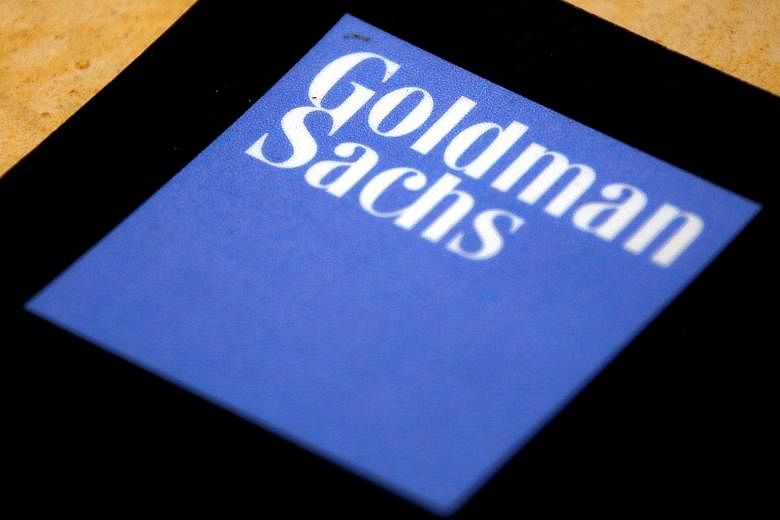NEW YORK (BLOOMBERG) - US prosecutors negotiating a possible deal with a former Goldman Sachs Group Inc. executive are pressing for information about whether the bank turned a blind eye to the plunder of a Malaysian investment fund, according to a person familiar with the matter.
If they reach a plea agreement with Tim Leissner, the Goldman banker who arranged the fund's bond offerings, he would become a key witness against his superiors at the bank, said the person, who asked not to be identified because the matter isn't public.
The US Justice Department hasn't brought any criminal charges in the running scandal over more than US$4 billion said to have been looted from 1Malaysia Development Bhd., or 1MDB, under the watch of then-Prime Minister Najib Razak. The US previously sought paintings, properties, diamond jewelry, movie rights and a 300-foot yacht, saying they were the spoils of money diverted from bonds meant to finance investment projects.
Since Malaysian voters ousted Najib in May, international probes have been reinvigorated. The country's new government is cooperating with Singaporean, Swiss and US authorities who are investigating individuals who may have had a hand in the scam and banks that moved cash around the world.
Goldman, in a statement, said it helped 1MDB raise money to invest for Malaysia's benefit.
"We had no visibility into whether some of those funds may have been diverted to other purposes by the issuer, members of the Malaysian government or others," the New York-based bank said.
After suspending Leissner, Goldman said, it discovered "certain activities he undertook that were deliberately hidden from the firm."
The bank said it brought those issues to the attention of relevant authorities, with whom it continues to fully cooperate.
Representatives for Leissner, who has been banned from the securities industry in the US and Singapore as the investigations continue, didn't respond to requests for comment. He switched lawyers earlier this year around the time he decided to pursue a deal with the US, according to the person familiar with the matter and a second with knowledge of the situation.
It's unclear whether plea discussions with Leissner, reported earlier by the Wall Street Journal, will lead to his cooperation. If he reaches a deal, his assistance wouldn't be limited to his work at the bank and could extend to what he knew about the individuals accused of looting 1MDB.
That includes financier Low Taek Jho, better known as Jho Low, who has been described by US investigators as a central figure in the scandal. Low, whose whereabouts are unknown, couldn't be reached for comment.
A spokesman for the US attorney's office in Brooklyn, which is handling the case, declined to comment.
Leissner, a German national who is married to fashion designer Kimora Lee Simmons, became a hero at Goldman Sachs in 2012 and 2013 for arranging the US$6.5 billion in 1MDB bond offerings that netted rich fees for the bank. He was promoted to the position of South-east Asia chairman in 2014.
After news reports surfaced in 2015 saying that funds from 1MDB had been diverted by members of Najib's circle, Goldman conducted a review of Leissner's activities. He was placed on administrative leave in early 2016 and left the bank shortly thereafter.
According to evidence gathered by prosecutors, Leissner appeared to mislead senior executives at the bank about how the proceeds of the 1MDB bond sales would be used. He has potential exposure to charges that he conspired to violate the Foreign Corrupt Practices Act, according to evidence presented by the government in previous filings in the case.
Even if Leissner withheld significant details from Goldman's top executives about the 1MDB fund-raising efforts, the bank might not be insulated from the legal consequences of its work. US law requires banks to exercise their own due diligence when conducting financial transactions on behalf of foreign nationals or entities.
Prosecutors could argue that Goldman's internal compliance efforts failed in the 1MDB matter, potentially subjecting the bank to charges of wire fraud and a conspiracy to launder money, according to the person familiar with the matter.
In its previous court filings, the Justice Department has said Goldman issued a prospectus for each of the three bond sales stating that the funds would be used for various development projects in Malaysia and elsewhere. In each case the circulars were misleading, prosecutors said, because they didn't disclose how a significant portion of those funds would be siphoned off by Najib's friends and members of his circle.
The Justice Department also noted that 1MDB told Goldman that it wanted to maintain "confidentiality" around the third fund-raising effort and execute the transaction as quickly as possible.
Separately, Goldman must contend with Malaysia's new government, which came to power with a vow to bring Najib and others involved in the 1MDB scandal to justice and swiftly jailed the former leader.
Prime Minister Mahathir Mohamad also wants to recoup at least some of the nearly US$600 million that Goldman made arranging the three bond sales, which the new government calls excessive.
"What we earned from the debt transactions reflected the risks we assumed at the time," Edward Naylor, a Hong Kong-based spokesman for Goldman, said in June.

